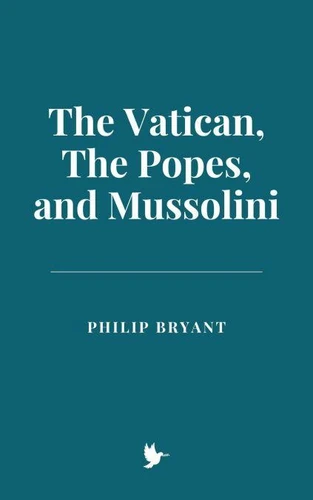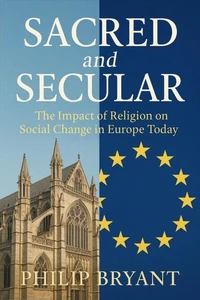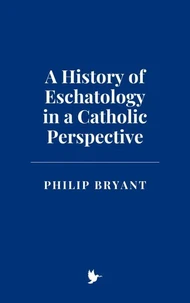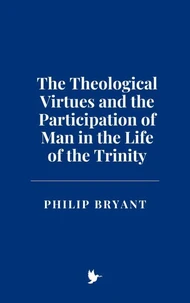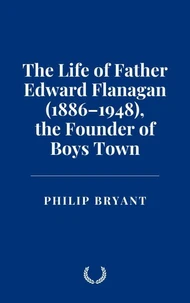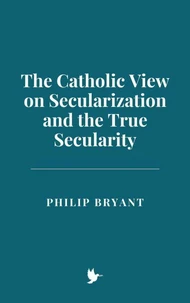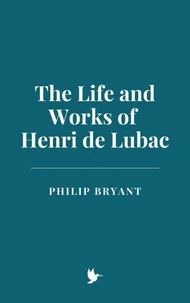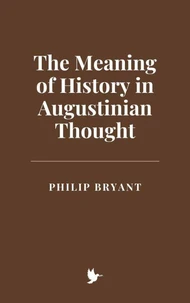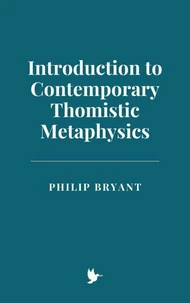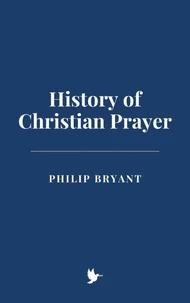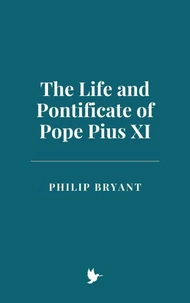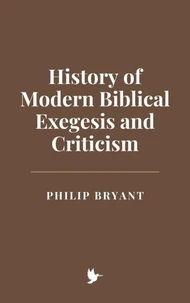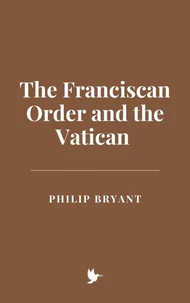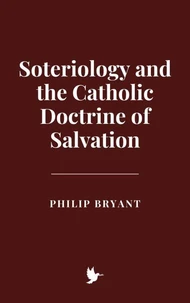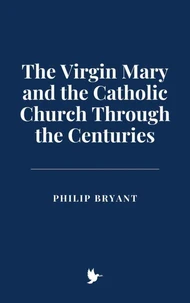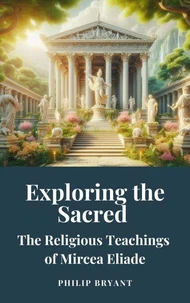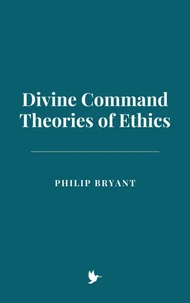The Vatican, The Popes, and Mussolini
Par :Formats :
Disponible dans votre compte client Decitre ou Furet du Nord dès validation de votre commande. Le format ePub est :
- Compatible avec une lecture sur My Vivlio (smartphone, tablette, ordinateur)
- Compatible avec une lecture sur liseuses Vivlio
- Pour les liseuses autres que Vivlio, vous devez utiliser le logiciel Adobe Digital Edition. Non compatible avec la lecture sur les liseuses Kindle, Remarkable et Sony
 , qui est-ce ?
, qui est-ce ?Notre partenaire de plateforme de lecture numérique où vous retrouverez l'ensemble de vos ebooks gratuitement
Pour en savoir plus sur nos ebooks, consultez notre aide en ligne ici
- FormatePub
- ISBN8230246671
- EAN9798230246671
- Date de parution12/11/2024
- Protection num.pas de protection
- Infos supplémentairesepub
- ÉditeurIndependently Published
Résumé
This book examines the complex relationship between the Vatican, the Popes, and Mussolini's fascist regime, exploring the moral and political compromises made by the Catholic Church in an era of authoritarian rule and global conflict. Through a chronological narrative, it details how the Vatican, seeking to protect its sovereignty and influence, forged a controversial alliance with Mussolini's Italy-a relationship that both bolstered the Church's role in Italian society and exposed it to moral compromise.
Beginning with the Lateran Treaty of 1929, which secured the Vatican's independence and recognized Catholicism as Italy's official religion, the book explores how Popes Pius XI and Pius XII navigated the complex challenges posed by fascist and Nazi ideologies. The Vatican's cautious diplomacy allowed it to maintain a degree of autonomy and provide covert assistance to persecuted individuals, particularly during the Holocaust, yet the Church's reluctance to openly condemn fascist abuses and Nazi atrocities remains a deeply contested aspect of its legacy.
In the post-war years, the Vatican faced new pressures as communism rose and Italian society embraced secular, democratic values. Pope Pius XII's alignment with anti-communist forces, particularly through support for the Christian Democratic Party, highlighted the Church's ongoing struggle to balance its spiritual mission with its involvement in political affairs. The ethical complexities of the Vatican's wartime and post-war actions catalyzed both internal reform movements and public scrutiny, setting the stage for transformative changes under the Second Vatican Council.
Ultimately, the book offers a nuanced reflection on the Vatican's role in a turbulent era, grappling with the moral dilemmas of political alliances and the challenges of upholding spiritual integrity in an evolving world. It considers how this period shaped the Church's approach to justice, human rights, and its engagement with modernity, providing insight into the Vatican's legacy and its quest for moral renewal.
Beginning with the Lateran Treaty of 1929, which secured the Vatican's independence and recognized Catholicism as Italy's official religion, the book explores how Popes Pius XI and Pius XII navigated the complex challenges posed by fascist and Nazi ideologies. The Vatican's cautious diplomacy allowed it to maintain a degree of autonomy and provide covert assistance to persecuted individuals, particularly during the Holocaust, yet the Church's reluctance to openly condemn fascist abuses and Nazi atrocities remains a deeply contested aspect of its legacy.
In the post-war years, the Vatican faced new pressures as communism rose and Italian society embraced secular, democratic values. Pope Pius XII's alignment with anti-communist forces, particularly through support for the Christian Democratic Party, highlighted the Church's ongoing struggle to balance its spiritual mission with its involvement in political affairs. The ethical complexities of the Vatican's wartime and post-war actions catalyzed both internal reform movements and public scrutiny, setting the stage for transformative changes under the Second Vatican Council.
Ultimately, the book offers a nuanced reflection on the Vatican's role in a turbulent era, grappling with the moral dilemmas of political alliances and the challenges of upholding spiritual integrity in an evolving world. It considers how this period shaped the Church's approach to justice, human rights, and its engagement with modernity, providing insight into the Vatican's legacy and its quest for moral renewal.
This book examines the complex relationship between the Vatican, the Popes, and Mussolini's fascist regime, exploring the moral and political compromises made by the Catholic Church in an era of authoritarian rule and global conflict. Through a chronological narrative, it details how the Vatican, seeking to protect its sovereignty and influence, forged a controversial alliance with Mussolini's Italy-a relationship that both bolstered the Church's role in Italian society and exposed it to moral compromise.
Beginning with the Lateran Treaty of 1929, which secured the Vatican's independence and recognized Catholicism as Italy's official religion, the book explores how Popes Pius XI and Pius XII navigated the complex challenges posed by fascist and Nazi ideologies. The Vatican's cautious diplomacy allowed it to maintain a degree of autonomy and provide covert assistance to persecuted individuals, particularly during the Holocaust, yet the Church's reluctance to openly condemn fascist abuses and Nazi atrocities remains a deeply contested aspect of its legacy.
In the post-war years, the Vatican faced new pressures as communism rose and Italian society embraced secular, democratic values. Pope Pius XII's alignment with anti-communist forces, particularly through support for the Christian Democratic Party, highlighted the Church's ongoing struggle to balance its spiritual mission with its involvement in political affairs. The ethical complexities of the Vatican's wartime and post-war actions catalyzed both internal reform movements and public scrutiny, setting the stage for transformative changes under the Second Vatican Council.
Ultimately, the book offers a nuanced reflection on the Vatican's role in a turbulent era, grappling with the moral dilemmas of political alliances and the challenges of upholding spiritual integrity in an evolving world. It considers how this period shaped the Church's approach to justice, human rights, and its engagement with modernity, providing insight into the Vatican's legacy and its quest for moral renewal.
Beginning with the Lateran Treaty of 1929, which secured the Vatican's independence and recognized Catholicism as Italy's official religion, the book explores how Popes Pius XI and Pius XII navigated the complex challenges posed by fascist and Nazi ideologies. The Vatican's cautious diplomacy allowed it to maintain a degree of autonomy and provide covert assistance to persecuted individuals, particularly during the Holocaust, yet the Church's reluctance to openly condemn fascist abuses and Nazi atrocities remains a deeply contested aspect of its legacy.
In the post-war years, the Vatican faced new pressures as communism rose and Italian society embraced secular, democratic values. Pope Pius XII's alignment with anti-communist forces, particularly through support for the Christian Democratic Party, highlighted the Church's ongoing struggle to balance its spiritual mission with its involvement in political affairs. The ethical complexities of the Vatican's wartime and post-war actions catalyzed both internal reform movements and public scrutiny, setting the stage for transformative changes under the Second Vatican Council.
Ultimately, the book offers a nuanced reflection on the Vatican's role in a turbulent era, grappling with the moral dilemmas of political alliances and the challenges of upholding spiritual integrity in an evolving world. It considers how this period shaped the Church's approach to justice, human rights, and its engagement with modernity, providing insight into the Vatican's legacy and its quest for moral renewal.

